Consider a light beam incident from air to a glass slab at Brewster's angle as shown in figure.
A polaroid is placed in the path of the emergent ray at point P and rotated about an axis passing through the centre and pependicular to the plane of the plaroid.
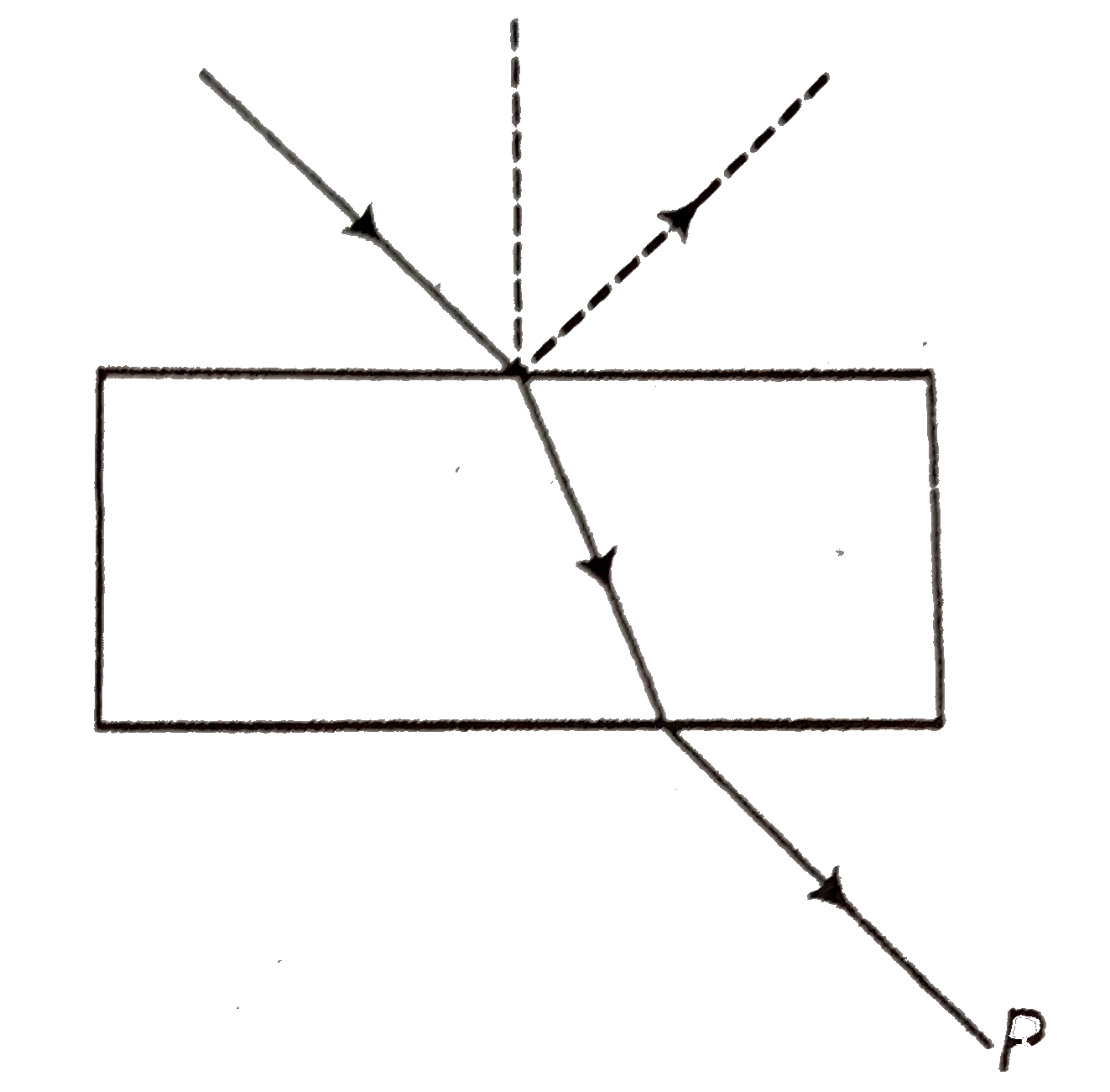
For a particular orientation, there shall be darkness as observed through the polaroid
The intensity of light as seen through the polaroid shall be independent of the rotation
The intensity of light as seen through the polaroid shall go through a minimum but not zero for two orientations of the polaroid
The intensity of light as seen through the polaroid shall go through a minimum for four orientations of the polaroid
The correct Answer is:C
Consider the diagram the light beam is incident from air to the glass slab at Brewster’s angle (Ip) . The incident ray is unpolarised and the reflected light is plane polarised represented by dots. Emergent ray is partially polarised.
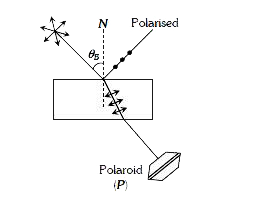
Topper's Solved these Questions
- BOOK - ERRORLESSCHAPTER - WAVE OPTICS AND ELECTROMAGNETIC THEORYEXERCISE - NCERT BASED QUESTIONS (EM Waves )40videos
WAVE OPTICS AND ELECTROMAGNETIC THEORY
- BOOK - ERRORLESSCHAPTER - WAVE OPTICS AND ELECTROMAGNETIC THEORYEXERCISE - PAST YEARS QUESTIONS45videos
WAVE OPTICS AND ELECTROMAGNETIC THEORY
- BOOK - ERRORLESSCHAPTER - WAVE OPTICS AND ELECTROMAGNETIC THEORYEXERCISE - NCERT BASED QUESTIONS (Diffraction of Light)20videos
WAVE OPTICS AND ELECTROMAGNETIC THEORY
- BOOK - ERRORLESSCHAPTER - RAY OPTICSEXERCISE - Assertion & Reason30videos
RAY OPTICS
Similar Questions
A light ray is incident on a plane glass slab of thickness ‘t’ at an angle of incidence ‘i’ as shown in the figure. If μ is the refractive index of glass. Then find time taken by the light ray to travel through the slab.
View SolutionA ray of light AO in vacuum is incident on a glass slab at angle 60∘and refracted at angle 30∘ along OB as shown in the figure.The optical path length of light ray from A to B is
View Solution
Knowledge Check
- Question 1 - Select One
Consider a light beam incident from air to a glass slab at Brewster's angle as shown in Figure.

A polaroid is placed in the path of the emergent ray at point P and rotated an axis passing through the centre and perpendicular to the plane of the polaroid.AFor a particular orientation there shall be darkness as observed through the polaroid.BThe intensity of light as seen through the polariod shall be independent of the rotation.CThe intensity of light as seen through the Polaroid shall go through a minimum but not zero for two orientations of the polaroid.DThe intensity of light as seen through the polaroid shall go through a minimum for four orientations of the polaroid - Question 2 - Select One
White light is incident on the interface of glass and air as shown in figure. If green ligth is just totally internally reflected then the emerging ray in air contains
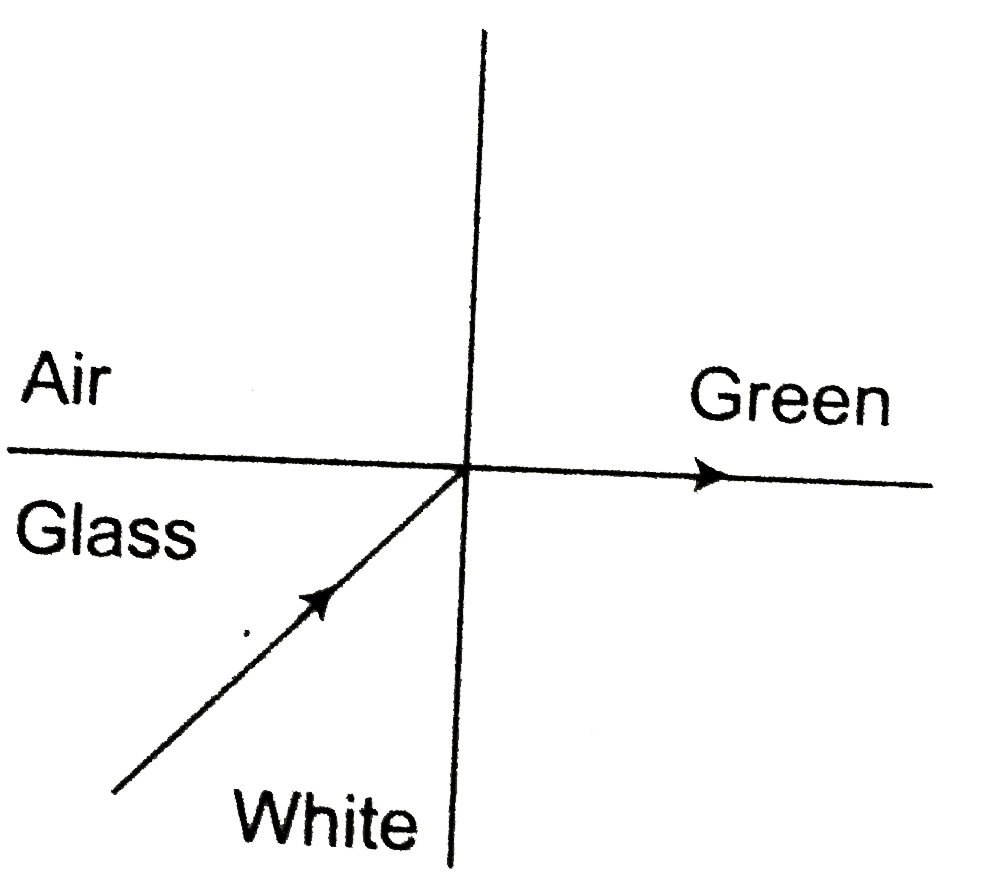 Ayellow, orange, redBviolet, indigo, blueCall coloursDall colours except green
Ayellow, orange, redBviolet, indigo, blueCall coloursDall colours except green - Question 3 - Select One
A short pulse of white light is incident from air to a glass slab at normal incidence. After travelling through the slab, the first colour to emerge is.
AblueBgreenCvioletDred
A plane mirror, reflecting a ray of incident light, is rotated through an angle θ about an axis through the point of incidence in the plane of the mirror perpendicular to the plane of incidence, then
View SolutionA plane mirror, reflecting a ray of incident light, is rotated through an angle θ about an axis through the point of incidence in the plane of the mirror perpendicular to the plane of incidence, then
View SolutionA rays of light is incident on a thick slab of glass of thickness t as shown in figure. The emergent ray is parallel to the incident ray but displaced sideways by a distance d. If the angles are small then d is
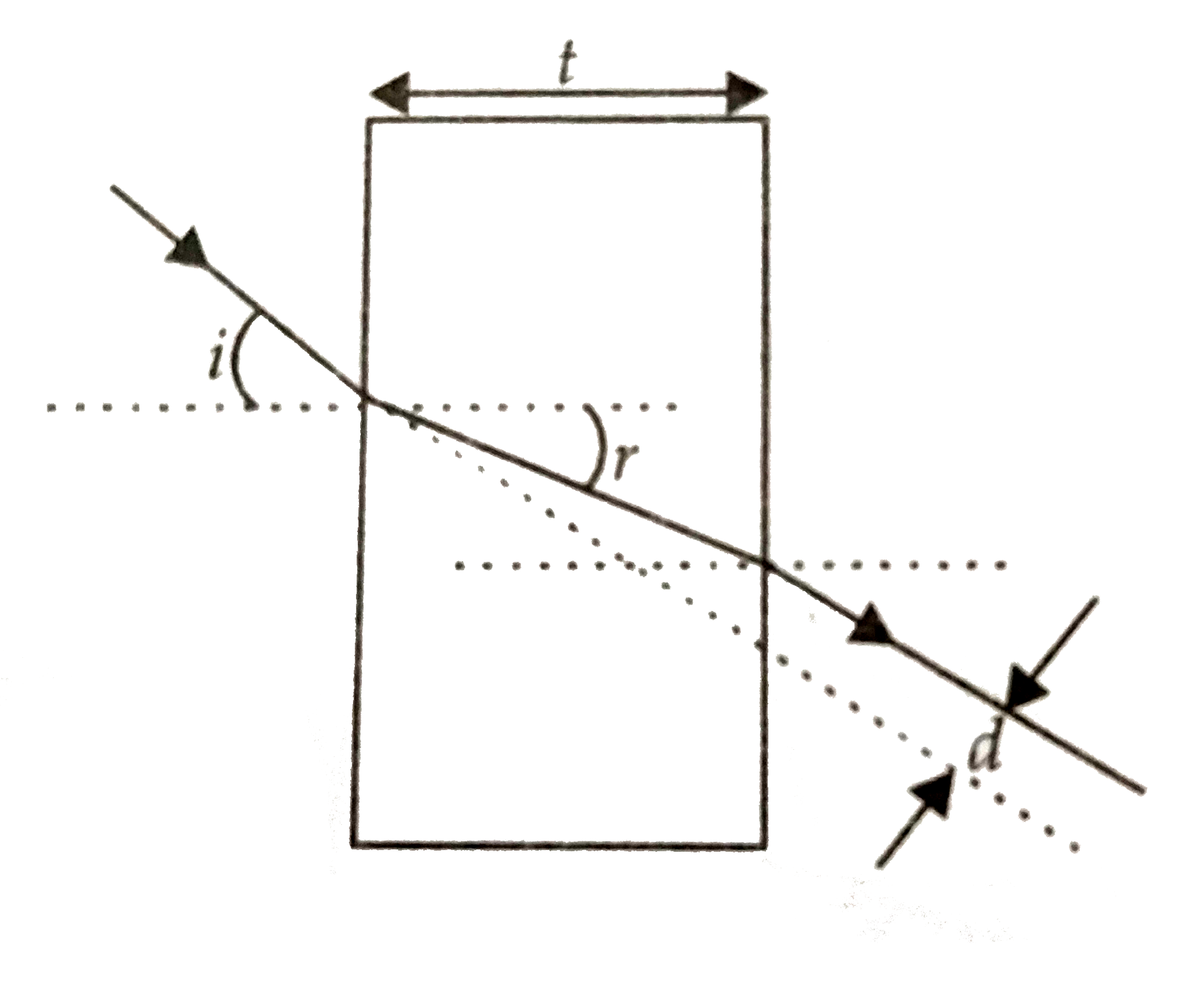 View Solution
View SolutionA plane mirror reflecting a ray of incident light is rotated through an angle of 30∘ about an axis through the point of incidence in the plane of the mirror and perpendicular to the plane of incidence then
View SolutionA ray of light is incident on a parallel-sided glass slab as shown in the figure. The angle of refraction for this ray of light is likely to be :
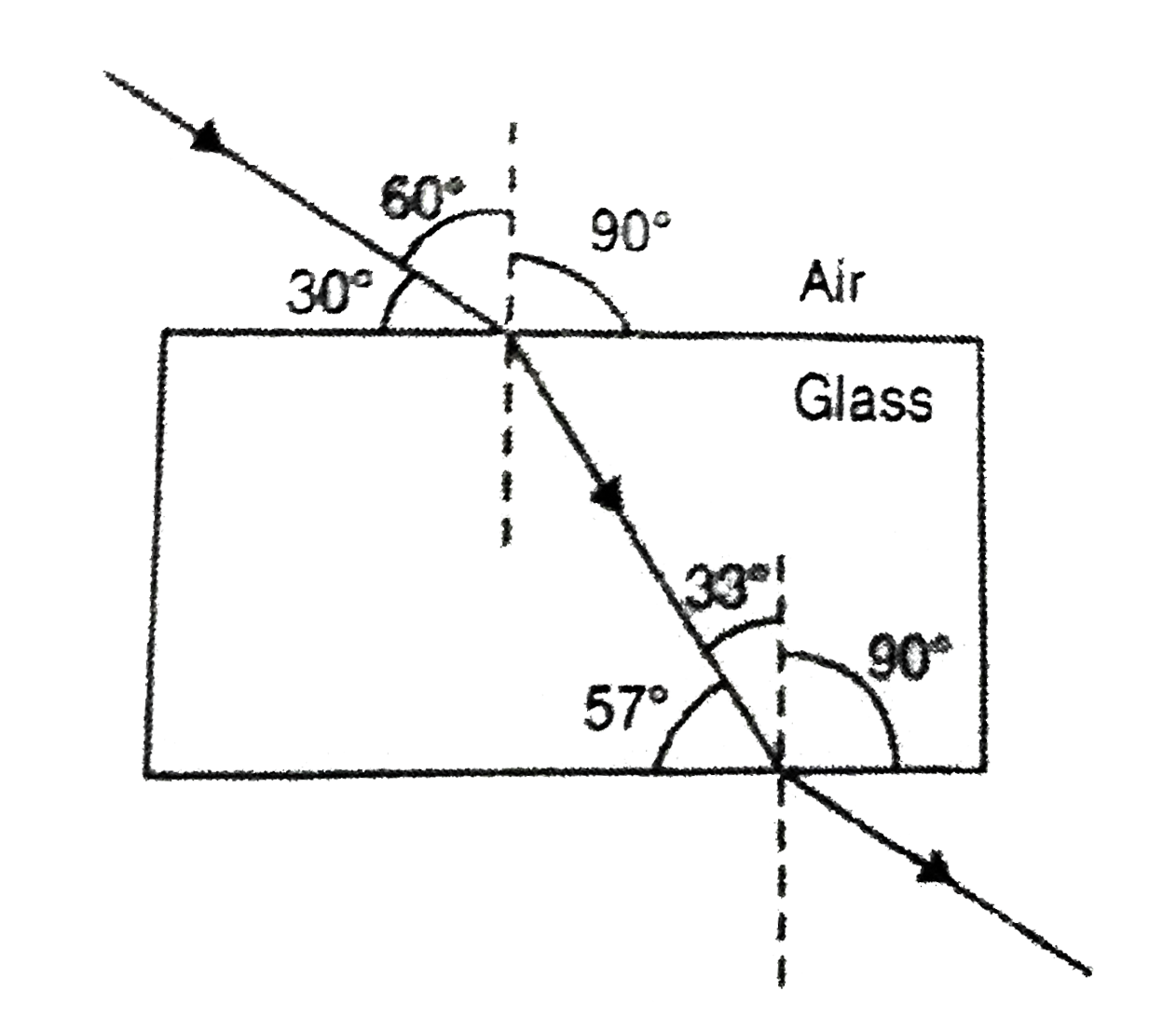 View Solution
View Solution
